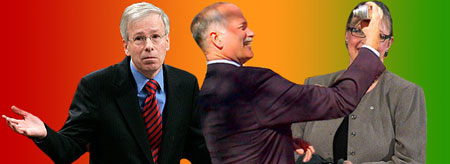According to this Toronto immigration lawyer, both Stephen Harper and Bob Rae are making a very “simple” mistake when it comes to the question of if Omar Khadr can return to Canada.
I have never dealt in this space with the right of Canadian citizens to enter Canada. The simple reason for this is that the law on this point is crystal clear and rarely in dispute.
This right is considered a “fundamental†one and so it is entrenched in our Canadian Charter of Rights and Freedoms which was signed by Queen Elizabeth in 1982.
Our Charter describes this right as follows:
“Every citizen of Canada has the right to enter, remain in and leave Canada.â€
…Pretty simple, huh?
Not when it comes to Omar Khadr.
This fundamental right seems to have somehow been ignored during most of the debate, and some of the rhetoric, that surrounds this Canadian citizen’s controversial set of circumstances.
…Prime Minister Stephen Harper has publicly stated that he will not allow Khadr back here unless the charges against him are dropped for good. Of course, Harper has not explained what legal authority he has to prevent Khadr, a Canadian citizen, from exercising his right to return to Canada.
Even the Canadian opposition has it wrong. Liberal foreign affairs critic Bob Rae suggested that Harper appoint a panel of experts to advise the Canadian government on how to deal with Khadr. Any expert, in my view, would agree that Khadr has a constitutional right to return to Canadian soil. What happens to him after that is a matter of domestic criminal law which is unrelated to his right to enter Canada.
The thousand or so senior judges who together form the Canadian Superior Court Judges Association describe our justice system as follows: “We are said to be ruled by law, not by those who enforce the law or wield government power.â€
President Obama’s actions have signaled a swift and firm return to the rule of law.
I hope that we will follow not only the American lead but also our own legal tradition.
Pretty serious stuff. Bob, on what grounds do you and the prime minister presume to be able to ignore the Charter?
